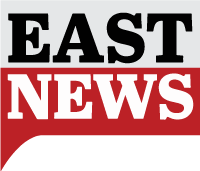Indo-Canadian organisations have expressed concern about Canada’s declaration of an emergency, drawing parallels with the Indian government’s lack of such drastic measures when faced with year-long farmer protests.
“We would like to see a peaceful resolution to end the Freedom Convoy’s occupation of Ottawa and the blockades of major highways,” said Shivendra Dwivedi, national president of the Canada India Global Forum (CIGF), which has chapters across the country. Things should be resolved through dialogue rather than emergency decrees, as was the case in India during farmer protests.”
“The gratuitous advice offered by (Canadian) Prime Minister (Justin) Trudeau to the Government of India on how to handle those protests,” the CIGF’s British Columbia chapter said in a statement. Unfortunately, he has not followed his own advice. We urge Prime Minister Trudeau to follow (Indian Prime Minister) Narendra Modi’s lead in dealing with peaceful protests through democratic means.”
In December 2020, Trudeau had commented, “Canada will always be there to defend the right to peaceful protest. We believe in the importance of dialogue and that’s why we’ve reached out through multiple means directly to the Indian authorities to highlight our concerns.”
India and Canada’s relationship was strained as a result of those unprompted remarks.
“While no attempt is made to understand the root cause of pandemic fatigue and government interference in people’s daily lives over two years, an economic case is made out to subdue popular dissent,” said Azad Kaushik, president of the National Association of Indo-Canadians. Canada’s soft power image abruptly transforms into a hard one, uncharacteristic of a twenty-first-century democracy, a loss to not only Canadians but the entire world.”
Meanwhile, Gad Saad, a Lebanese-Canadian professor at Concordia University in Montreal, reached out to Modi in a witty tweet, writing, “Dear @narendramodi, we’re looking to leave Canada to escape the dictatorship.” Is there any room in India for us?”
Saad is a former Research Chair in Evolutionary Behavioural Sciences and Darwinian Consumption at Concordia University and a professor of marketing at Concordia.
Civil liberties organisations in Canada have already spoken out against Trudeau’s use of the Emergencies Act on Monday to deal with the ongoing trucker unrest. Protesters blocked two border crossings in Coutts, Alberta, and Windsor, Ontario, which were cleared by Canadian law enforcement.
The Freedom Convoy 2022, on the other hand, continues to occupy Ottawa, Canada’s capital. On Tuesday, Ottawa police chief Peter Sloly resigned as a result of the situation.
Despite the potentially severe penalty, the organisers appear willing to continue the siege. “Our political leaders will eventually learn that they are on the wrong side of history,” Tamara Lich, one of them, tweeted.
Vaccine mandates, vaccine passports, and Covid-19-related restrictions sparked the protests. Since the protests began, several provinces have announced the abolition of mandates and passports, as well as the relaxation of other restrictions.
The federal government removed its advisory against non-essential travel outside the country, as well as the requirement for a negative RT-PCR test result before flying to a Canadian destination, on Tuesday. This, however, will only apply to travellers who have been fully vaccinated.
However, Ottawa is sticking to its mandate for cross-border trucking, which was enacted in mid-January and is the immediate source of the current protests.
For more Latest News Updates visit our website- https://www.eastnews.in/
For Arunachal Latest News updates Visit- https://www.eastnews.in/arunachal-pradesh-news/

